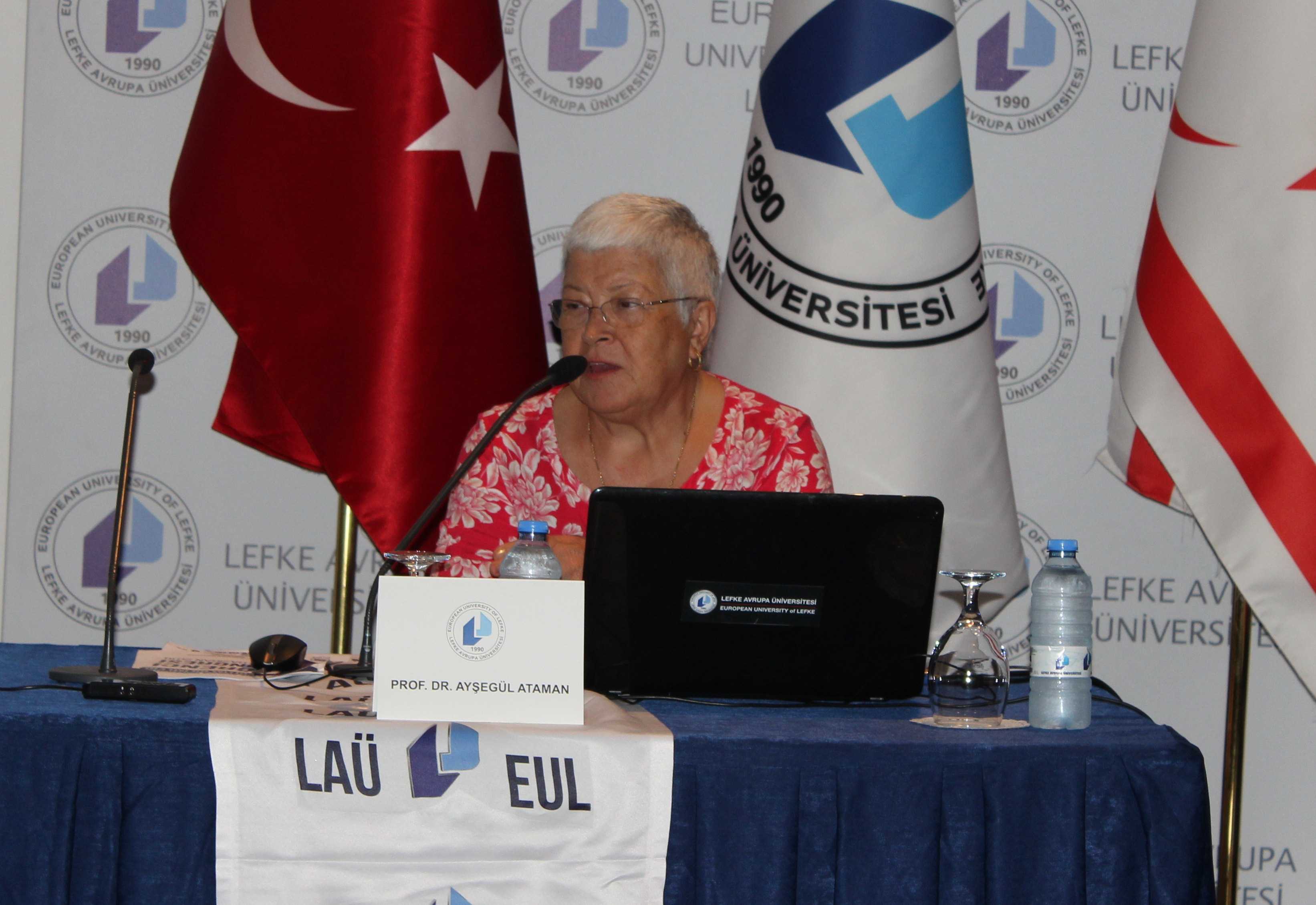Intervention is only possible with the Acceptance of the Diagnosis by the Family

Early Diagnosis is Vital in Special Education
Head of European University of Lefke (EUL) Department of Special Education Prof. Dr. Ayşegül Ataman highlighted the concept of “The Importance of Early Diagnosis in Special Education” and made statements on the subject.
Ataman: “The intervention is only possible with the acceptance of the diagnosis related with the development disorder by the family”
Ataman said that it is necessary to consider the first five years of the life as the period which represents the creation of physical, emotional and social development’s foundation and added that the main personality characteristics of children are formed at two or three years of age and the observation of an unusually fast or slow growth in this period is of great importance for early diagnosis. Ataman said that, “The intervention is only possible with the acceptance of the diagnosis related with the development disorder by the family, in this context, views of development theorists for early diagnosis are extremely important”.
Ataman stated that Maria Montessori who is one of the pioneers of the filed has very important contributions to the field of early childhood special education and added that she conducts her studies on the education of children with intellectual disabilities. Ataman also stated that early intervention in these individuals is more important than medical intervention and pointed out that Montessori has achieved successful results by developing an activity-based teaching method.
Ataman: If the intervention is established on the first days of diagnosis, inabilities won’t grow into disabilities.
Ataman pointed out that 0-3 age is the most critical period in the development of the child and touched upon the fact that the risk of children who are premature, who had low birth weight, poor and deprived family children from groups with sub-socio-economic and cultural characteristics, having special needs are higher. Ataman highlighted that if the intervention is established on the first days of diagnosis, both the need of the family and child can be met and inabilities won’t grow into disabilities.
Ataman pointed out that the child must be observed staidly so that the risk factors that can be observed after childbirth are not transformed into harmful, ineffective, obstructive results and listed the ones that can request observation as;
In terms of physical conditions: Pediatrician, Family physician, Dentist, Orthopedist, Cardiologist
Speech and Language: Speech-language therapist, audiologist, child psychiatrist, Special education teacher
Auditory: Audiologist, speech-language therapist, rhinolaryngologist, family physician, classroom teacher
Motor: Job-occupational therapist, pediatrician, neurologist, child psychiatrist, special education teacher, language-speech therapist
Social and Emotional: Child psychiatrist, psychiatrist social worker, special education teacher, classroom teacher, audiologist, speech-language therapist
Ataman: Recommendation of appropriate intervention and working together with the family in order to get a decision about the child is vital
Ataman stated that evaluation process is conducted via diagnostic measurements, standardized tests, criterion-dependent scales, ecological and field measurements and explained interdisciplinary analysis as the process of game-based measurement, evaluation of the child in a gaming environment with systematic observation, developmental scans, child health records, performance in the basic development areas, requirements, recommendation of appropriate intervention and forming an opinion about the child together with the family.
Ataman said that “In the 0-5 age range, parents are struggling to make a definite diagnosis for their children and do not know how to inform other children and relatives about the situation of the child with a disability. There is a need for support as to what kind of discourse should be used to make the child not to be alienated.”
Ataman finally emphasized that families should analyze where to get support for the child who needs special education and added that they need to pay attention to the future planning of the child.
